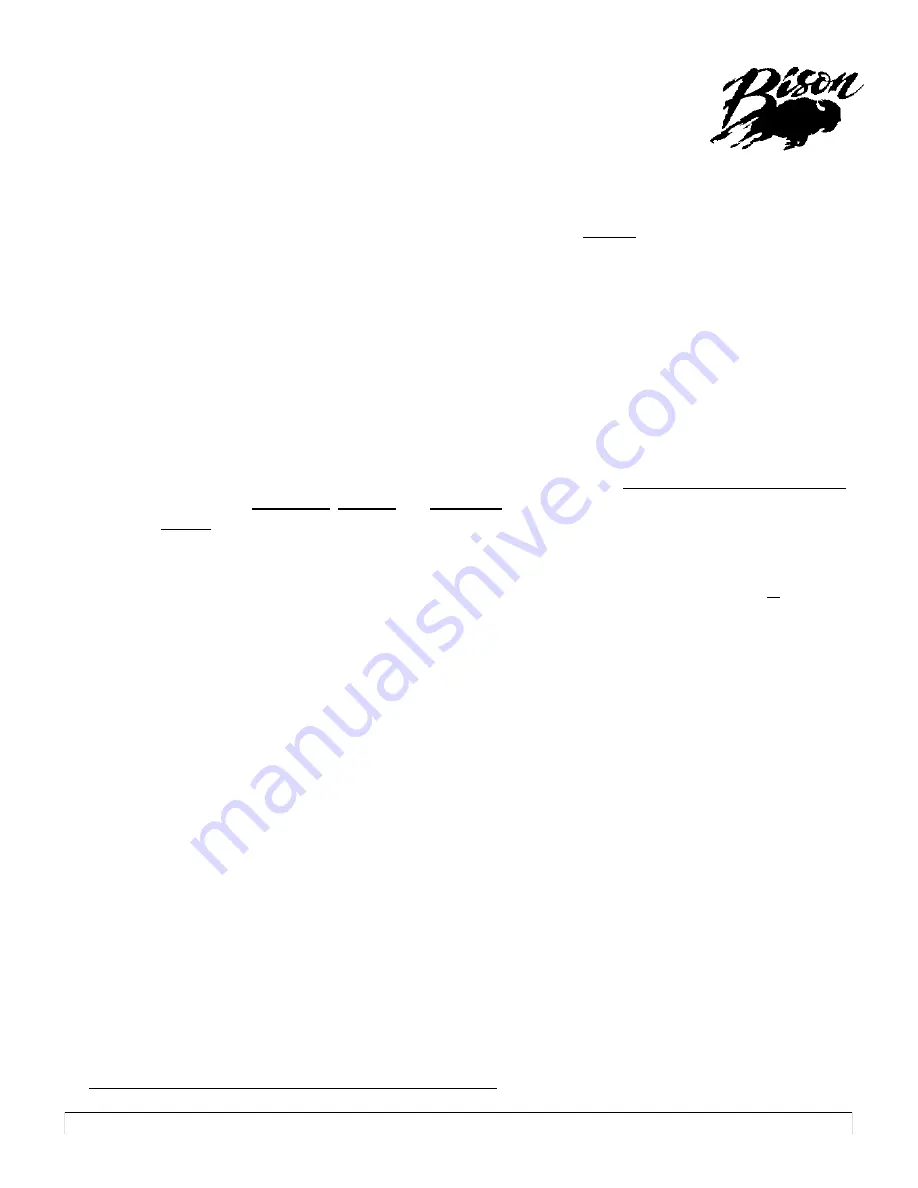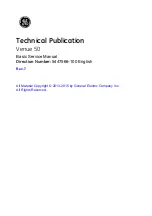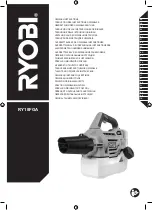
1
—— Instruction Manual ——
BM21/BM30-CV
Installation of Badminton Floor Sleeve & Hinged Brass Cover
Date: 07/24/2018 Rev: 1 B.A. N.J.C. File: I:\Publisher\Instructions\Badminton Ref#: 960974
Customer Service
(800) 247-7668
1. Mark two spots on the floor exactly 20 feet apart. These represent the centers of each sleeve installation.
2. Cut two round holes through the playing surface 2 1/2” to 3 1/2” maximum diameter that are centered on each
of the spots you marked.
3. After cutting out the circle in the surface flooring, cut a similar hole in the concrete slab below. The diameter
of this hole can be 3” to 4”. The size of this hole is not critical. It simply must be large enough to accommo-
date the sleeve (Detail #1). This can be accomplished with a core bit or by drilling a series of small holes
around the circumference. The hole in the concrete does not need to be neat.
4. When drilling the hole in the concrete, you need to fully penetrate the concrete slab. Under the slab, hollow
out (by hand) an area about 8-10 inches all the way around the edges of the hole. Depth should also be about
16-20” from the playing surface. This will mean that the hole is about 6 inches deeper than the bottom of the
sleeve once it is inserted.
5. We recommend you use a “non-shrink” grout to anchor the sleeve. We use Masterbuilders Masterflow #713.
Other good brands are SuperRock, Embeco and Hydrocide. Pour the mixture into the hole until it is just
below the bottom of the concrete hole. Cover the sleeve during the installation to prevent debris from falling
into it.
6. Insert the sleeve (Detail #1) and work it down into the grout until the inside bottom of the sleeve is 14 1/2” be-
low the top surface of the floor. (If, for some reason, you can’t get the sleeve set at this depth, it is possible
to alter the post to get the correct net heights.)
7. Pay particular attention to perpendicularity of the sleeve relative to the playing surface. Even a few degrees
off vertical will result in the post being visibly skewed.
8. Turn the ring and cover upside down (Detail #2) and approximately center it over the hole. Holding it firmly in
place, outline it on the floor. Note: the purpose in centering this ring and cover above the sleeve, will allow
the post to pass through to the sleeve below. It may be slightly off-center and still work. This over-sized de-
sign facilitates movement of the floor now or in the future. (For extreme cases of movement, a larger cover is
available, and can be retrofitted.)
9. A counter bored hole 4 1/2” diameter with a depth of 9/16” will have to be made to receive the floor plate top
(Detail #2). This may be done by using a router and a template. The template can be made from a piece of
Masonite or thick plastic. Make a hole in the template material so that when the router is used with it, the
counter bored diameter is 4 1/2”. Use a scrap board for practice in checking the outcome of the hole itself.
10. Center the template over the 5” diameter hole. When making the counter bored hole, keep pressure on the
template at all times. This will keep the template from slipping and also the wood floor around the floor plate
will not splinter. Do not set the depth the depth of the router at 9/16” immediately. Gradually work down to
the depth at which the floor plate is just flush with the surface of the floor. Place the floor plate down into the
hole several times so as not to make the hole too deep. When installed, the plate must fit perfectly flush with
the top surface of the floor.
11. Place the ring in the routed out portion of the hole. Inside the ring there are three (3) holes. Use the provided
screws in the holes to secure the ring to the floor. (Normally this will be located in such a fashion that the
covers open away from the court, though this is not critical.)
12. Wait a minimum of seven days before setting up the poles.
Summary of Contents for BM21
Page 3: ...3 DETAIL 1...






















